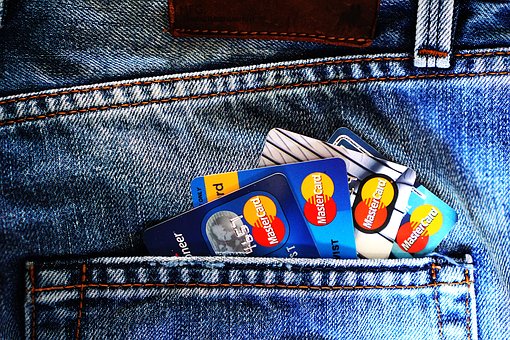A person’s first credit card can mean the difference between establishing an excellent credit score or building an unhealthy financial future.
If not used properly, credit cards can lead to mountains of debt, which can be challenging to repay.
As a result, before anyone starts to use their first credit card, below are a few guidelines that will lead you along the right financial path.

1. Set a Budget
Although a credit card can allow the holder access to a lot of purchases, it shouldn’t tempt one to buy things they can’t afford. Given that it’s a convenient way to purchase and earn rewards, it’s so easy for the holder to get on a shopping rampage.
As a result, it’s advisable to have a realistic idea of the amount you can spend, which you can also pay back at the end of the month. Keeping a budget is highly advisable and following it will help keep your spending and saving in proportion.
2. Set Up Automatic Payments
Paying a monthly bill takes time to get used to, and it’s so easy to ignore or postpone payments. To avoid pressure, extra charges, and late credit card bills, try scheduling automatic payments ahead of the due date.
Also, ensure that your expected salary is above the minimum amount of payment on your card so you have enough funds in your account before a scheduled payment is released. Failure to do that leads to late fee charges and a returned payment fee.
Also, timely payment boosts payment history, which contributes to one’s credit score. Lenders use credit scores to assess one’s credit usage, and therefore, it’s recommendable to pay all the credit card bills on time to keep the score high.
3. Keep a Record of Your Purchases
Track your monthly purchases by using either your credit card’s website or app. Once the monthly spending limit is hit, avoid using the card until the balance is paid off. This financial discipline keeps one out of credit card debt and helps build a good credit score.
Thoughts
In conclusion, to be able to enjoy your credit card, always ensure to pay on time to keep your credit score high. Keep a monthly budget of the necessities first and then put wants last on the list. Always strive not to exceed your minimum payment. Setting up automatic payments will protect you from extra charges due to late payments.
When first using a credit card, it can be tempting to make use of your high credit limit. However, this is a mistake. Go slow. Make sure that you are not purchasing anything you cannot truly afford. So start small and, at first, use your credit card for your basic necessities.
